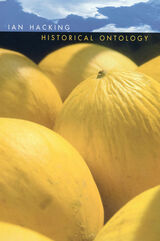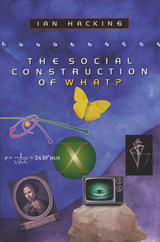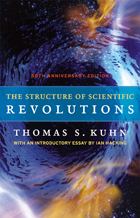
With the unusual clarity, distinctive and engaging style, and penetrating insight that have drawn such a wide range of readers to his work, Ian Hacking here offers his reflections on the philosophical uses of history. The focus of this volume, which collects both recent and now-classic essays, is the historical emergence of concepts and objects, through new uses of words and sentences in specific settings, and new patterns or styles of reasoning within those sentences. In its lucid and thoroughgoing look at the historical dimension of concepts, the book is at once a systematic formulation of Hacking’s approach and its relation to other types of intellectual history, and a valuable contribution to philosophical understanding.
Hacking opens the volume with an extended meditation on the philosophical significance of history. The importance of Michel Foucault—for the development of this theme, and for Hacking’s own work in intellectual history—emerges in the following chapters, which place Hacking’s classic essays on Foucault within the wider context of general reflections on historical methodology. Against this background, Hacking then develops ideas about how language, styles of reasoning, and “psychological” phenomena figure in the articulation of concepts—and in the very prospect of doing philosophy as historical ontology.

Ian Hacking tells the fascinating tale of Albert Dadas, a native of France’s Bordeaux region and the first diagnosed mad traveler. Dadas suffered from a strange compulsion that led him to travel obsessively, often without identification, not knowing who he was or why he traveled. Using the records of Philippe Tissié, Dadas’s physician, Hacking attempts to make sense of this strange epidemic.
In telling this tale, Hacking raises probing questions about the nature of mental disorders, the cultural repercussions of their diagnosis, and the relevance of this century-old case study for today’s overanalyzed society.


Lost in the raging debate over the validity of social construction is the question of what, precisely, is being constructed. Facts, gender, quarks, reality? Is it a person? An object? An idea? A theory? Each entails a different notion of social construction, Ian Hacking reminds us. His book explores an array of examples to reveal the deep issues underlying contentious accounts of reality.
Especially troublesome in this dispute is the status of the natural sciences, and this is where Hacking finds some of his most telling cases, from the conflict between biological and social approaches to mental illness to vying accounts of current research in sedimentary geology. He looks at the issue of child abuse—very much a reality, though the idea of child abuse is a social product. He also cautiously examines the ways in which advanced research on new weapons influences not the content but the form of science. In conclusion, Hacking comments on the “culture wars” in anthropology, in particular a spat between leading ethnographers over Hawaii and Captain Cook. Written with generosity and gentle wit by one of our most distinguished philosophers of science, this wise book brings a much needed measure of clarity to current arguments about the nature of knowledge.

A good book may have the power to change the way we see the world, but a great book actually becomes part of our daily consciousness, pervading our thinking to the point that we take it for granted, and we forget how provocative and challenging its ideas once were—and still are. The Structure of Scientific Revolutions is that kind of book. When it was first published in 1962, it was a landmark event in the history and philosophy of science. Fifty years later, it still has many lessons to teach.
With The Structure of Scientific Revolutions, Kuhn challenged long-standing linear notions of scientific progress, arguing that transformative ideas don’t arise from the day-to-day, gradual process of experimentation and data accumulation but that the revolutions in science, those breakthrough moments that disrupt accepted thinking and offer unanticipated ideas, occur outside of “normal science,” as he called it. Though Kuhn was writing when physics ruled the sciences, his ideas on how scientific revolutions bring order to the anomalies that amass over time in research experiments are still instructive in our biotech age.
This new edition of Kuhn’s essential work in the history of science includes an insightful introduction by Ian Hacking, which clarifies terms popularized by Kuhn, including paradigm and incommensurability, and applies Kuhn’s ideas to the science of today. Usefully keyed to the separate sections of the book, Hacking’s introduction provides important background information as well as a contemporary context. Newly designed, with an expanded index, this edition will be eagerly welcomed by the next generation of readers seeking to understand the history of our perspectives on science.
READERS
Browse our collection.
PUBLISHERS
See BiblioVault's publisher services.
STUDENT SERVICES
Files for college accessibility offices.
UChicago Accessibility Resources
home | accessibility | search | about | contact us
BiblioVault ® 2001 - 2024
The University of Chicago Press









